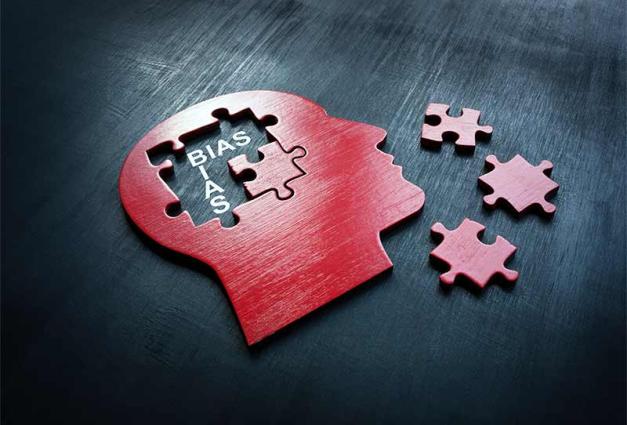You’ve probably always suspected this, and it’s true: Good-looking people enjoy a lot of career perks. They get hired, earn more, get promoted more, and have more positive performance evaluations. Is this just due to bias? Partly. Research shows that when people are sent fake resumes that are completely identical except for the photos attached, applicants with attractive photos get more callbacks.
But this is only part of the story. Our research shows that physically attractive job applicants may actually be feeling and doing something different from other people in interviews—and there may be ways for the rest of us to level the playing field.
Building on previous research, we thought that good-looking applicants might do better in job interviews not just because interviewers swoon over them, but because they present themselves differently from others. Due to positive stereotypes toward attractiveness—the widely held, often unconscious beliefs that prettier people are also smarter, more competent, and more successful—attractive individuals often get more attention from others, have higher status in social groups, and receive preferential treatment. As a result, these stereotypes can create a self-fulfilling prophecy. With years of positive social experiences as children and teenagers, good-looking adults may develop more positive self-views and more effective interpersonal skills, all of which may contribute to their career success. It’s true that there can also be negative stereotypes or backlash against attractive people—for example, the notion that good-looking people are shallow. However, research suggests that positive views of attractiveness generally prevail, which leads to those career advantages.
Supporting the notion of positive self-fulfilling prophecy, one study found that attractive individuals had better social skills than less attractive individuals—even when all communications were by phone, and those who rated the social skills could not see the person on the other end. A classic social psychology experiment reinforced the self-fulfilling prophecy explanation, demonstrating that when individuals were perceived as attractive by their partner in a one-time phone interaction, they came to behave in a more likeable and friendly way despite not knowing their partner had been told they were good-looking. Another study argued that greater confidence and oral communication skills could account for up to 60% of the “beauty premium” whereby more attractive people earn higher wages.
So our first question was: Do attractive people get ahead partly because they’ve cracked the code of successful social interactions? If so, that would raise a second question: Could less attractive people adopt the same techniques to get better outcomes in the hiring process?
Attractiveness And The Elevator Pitch
We invited undergraduate and graduate students who were gearing up to apply for jobs to record a three-minute video explaining why they were the right person for a fictitious position. In the elevator pitch, they introduced themselves and talked about their qualifications, in a format similar to the opening minutes of a typical job interview (answering questions like “tell me about yourself” or “tell me why you want this job”) or the pre-recorded “video” interviews many companies are increasingly using as an initial step in the hiring process. Before participants prepared and recorded their pitches, we asked them to rate their “sense of power”—a measure of how confident and powerful they felt. We then had two sets of observers rate the videos: one group assessed participants’ physical attractiveness and another group evaluated how confident, enthusiastic, captivating, and un-awkward the candidates were, which we called nonverbal presence. We also had real managers rate each participant’s hirability based on their pitch.
First, physical attractive participants felt more powerful and confident in their own ability to persuade others than did their less attractive counterparts. This got the ball rolling for better nonverbal presence, leading them to come across more confidently and enthusiastically. Not surprisingly, they received higher hirability ratings than less attractive candidates did. In other words, attractive applicants’ heightened feelings of self-assurance affected how they came across to others in ways that made them more likely to get the job.
What If We Increase Applicants’ Sense Of Power?
We next invited another group of undergraduate students to record elevator pitches for the same fictitious position. We randomly assigned half of them to strike a “power posing” position—think Superman or Wonder Woman—for a few minutes before they recorded their pitches. The other half of the participants were assigned to a neutral control condition, in which they could move normally while they prepared.
Here’s the good news: Power posing leveled the attractiveness gap in evaluations of nonverbal presence. That is, when less attractive participants practiced a power pose before recording their videos, they were perceived equally as confident, enthusiastic, and so on as their more attractive counterparts came across naturally. And participants with a stronger nonverbal presence were again rated as more hirable.
Of course, power posing is not a magic bullet for fixing biases about attractiveness or other biases that exist in the workplace, and our goal is not to put the burden of reducing bias on individual applicants. Organizations must be proactive. For decades, experts in our field have touted the benefits of structured interviews, which use consistent questions to minimize the potential for unintended bias, and there’s growing interest in the potential of artificial intelligence to counter human biases in the hiring process as well.
Nevertheless, our study does offer a potential tool for job-seekers hoping to gain an edge, especially those who lack a physical appearance advantage. Taking a few minutes to try out a power pose before your next interview could help you feel, and appear, more confident—and make it just a little easier to get that job.
For Further Reading
Tu, M. H., Gilbert, E. K., & Bono, J. E. (2021). Is beauty more than skin deep? Attractiveness, power, and nonverbal presence in evaluations of hirability. Personnel Psychology. https://doi.org/10.1111/peps.12469
Min-Hsuan Tu is an assistant professor of organization and human resource management at the University at Buffalo School of Management. She studies how to help people without advantages and resources navigate challenges at work.
Elisabeth Gilbert is an assistant professor of business administration in the Williams School of Commerce, Economics and Politics at Washington and Lee University. She studies ways to improve employees’ experiences in the workplace.
Joyce Bono is the W.A. McGriff III professor in the Warrington College of Business at the University of Florida. She studies leadership and how gender-based stereotypes affect women.




